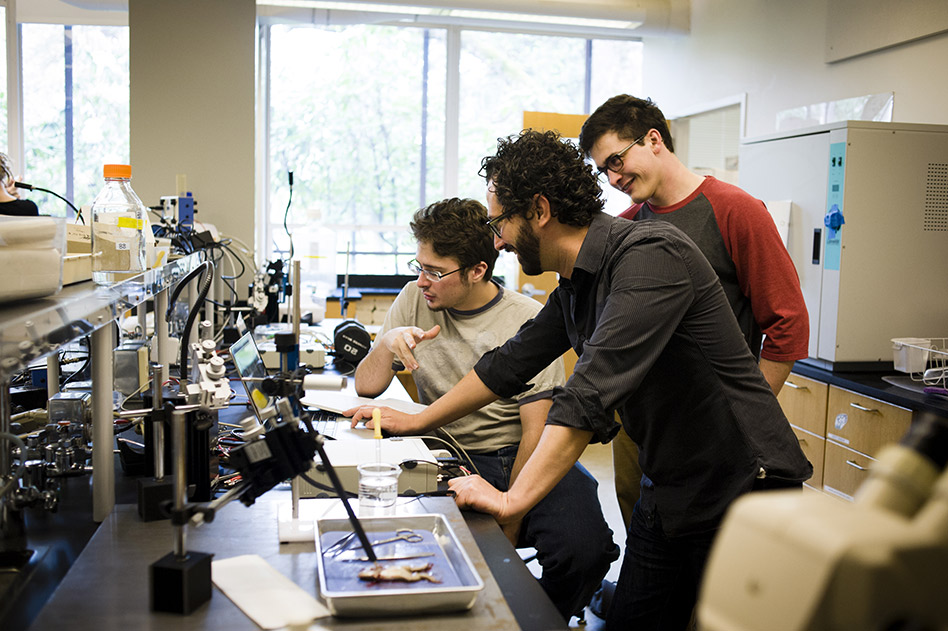
IRIS login | Reed College home Volume 96, No. 2: June 2017
Tags
"NIH grant"
Bio prof wins $362K from NIH to study pathogens
Prof. Jay Mellies [biology 1999-] has won a two-year grant for $362,769 from the National Institutes of Health for a project entitled “Pch Super Family Regulators of Gram-Negative Pathogens”
Prof. Mellies will investigate a key regulatory protein that enables the pathogen E. coli to cause disease in children. The protein, called Pch, controls niche adaptation—how the bacterium can outcompete other members of the microbial community in the small intestine and manipulate the host immune system to its own advantage.
Pch proteins are found in several medically important bacteria, including Salmonella, Shigella and Klebsiella, and thus a greater understanding of the Pch family of proteins could lead to novel therapies. Prof. Mellies aims to understand how Pch proteins function on a molecular level.
Continue reading Bio prof wins $362K from NIH to study pathogens
Bio Prof Wins $444K Grant from NIH
Prof. Erik Zornik [biology 2012–] has been awarded a $444,000 grant from the National Institutes of Health to support his research on mechanisms in the brain that generate rhythmic behavior—with the goal of finding new treatments for neurological disorders.
Prof. Zornik is interested in how behavioral variation is encoded in neural circuits. His research investigates a hindbrain central pattern generator (CPG) that generates the courtship vocal behaviors of African clawed frogs, Xenopus laevis.
“Adults of this species exhibit a rich vocal repertoire of at least seven call types that range from rhythmically simple to temporally complex,” Zornik explains. “Xenopus vocalizations are sexually differentiated; males and females produce calls with distinct temporal characteristics that are regulated by steroid hormones during development and in adulthood. This makes their vocal behaviors an ideal subject for understanding the neural basis of behavior and behavioral plasticity.”
Continue reading Bio Prof Wins $444K Grant from NIH



